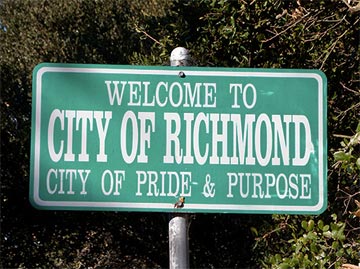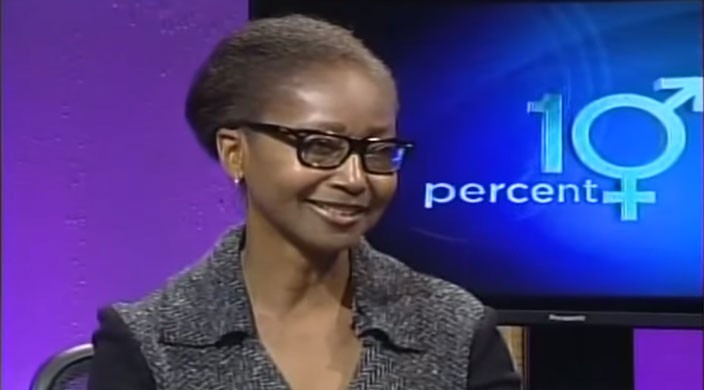“An Obligation to Be Responsible” – Brenda Williams Tackles the Fine Line between Free Speech and Hate Speech in Her Film Against Hate
Richmond, California resident Mark Wassberg takes the stand at a town hall meeting. His words echo throughout the room,
“I’m going to keep coming up here and telling you how gays have no morality. … You’re filth. You’re dirt. Because I have the constitutional right to say it,” he bellows.
“Mommy, can you really say these things out loud?” a young girl asks.
Brenda Williams, producer of the documentary Against Hate, is thrown off by her daughter’s question. Her response is difficult to articulate, “Yes you can, but you have an obligation to be responsible.”
Questioning free speech in America is outright treason. But as America continues to undergo a rapid transformation in its social fabric, a complicated question arises, one that requires bringing the country’s footing under cross-examination: when does Free Speech become Hate Speech? It is a question few wish to discuss but one that Brenda Williams’ documentary Against Hate felt inclined to answer.

Councilmember Jovanka Beckles’ 2014 Re-Election Ad
Against Hate follows the events that unfolded in Richmond, California, one of the most diverse cities in the America’s most progressive state, during the tenure of councilmember Jovanka Beckles.
Beckles, an African-American politician, harbors a youthful complexion and radiant smile that suggest a joyous, carefree life. Her calm, intelligent demeanor on the other hand gives off an air of wisdom usually reserved for women twice her age. Sitting tall and proud, her friendly expression never wavers, even as she receives copious doses of what can only be described as verbal cyanide.
Jovanka Beckles is a self-identifying lesbian. Due to her sexual orientation and position of power, she became the target of verbal assaults from a group of Richmond residents who showed up to town hall meetings throughout her tenure, intent on degrading her and her position as the face of Richmond’s progressive community, a role she never chose to occupy. The assaults targeted all facets of Beckles’ person: her appearance, her marriage, her background, her friends and family, her position in the government, and her personal beliefs.
Those who came to attack Beckles did not do so out of their own volition. A majority felt inclined to do so, grounding their attacks in two of the world’s most peaceful documents: the American Constitution and the Bible.
The son of a preacher, Brenda Williams was used to hearing the text of the Bible, but she was not used to hearing it used as a basis for verbal assault. She was astounded to find that Christians comprised a portion of those dishing out the most vicious assaults. The councilmember was told she was infected with a moral disease, an embarrassment to her creator, and a harmful influence on new generations. Some said she was undeserving of life.
Then there were those who came armed both with their First Amendment rights and a deep-seeded hatred for those they considered different – a deadly combination in the right hands. Basing their attacks on the centuries-old tradition of prosecuting homosexuals, some townspeople did not hold back. They told Jovanka she was a disgrace of a human being, a detriment to the entire community, and that her very being alive made others’ lives more difficult.

Richmond, California – The City of Pride and Purpose
There was no limit to the verbal onslaught Jovanka endured during each town hall. But each time an attempt was made by spectators to silence the agitator at the podium, cries of “Freedom of speech!” erupted into the microphone.
Born into a minister’s household, filmmaker Brenda Williams was raised to believe in Freedom of Speech. A California native, she was used to hearing free speech pushed to the extreme on both sides of the social spectrum. There was nothing someone could say that she hadn’t heard before. This she believed wholeheartedly; that is, until she began filming the life of Jovanka Beckles.
Williams, still a proponent of free speech, now takes issue with the two texts she was raised to worship. The Bible, she says, provides a freedom that is a liberating freedom, not a freedom to suppress. However, in the wrong hands, that liberating freedom can be used as a means of suppressing another. She takes similar issue with the Constitution. She asserts that it’s a good document, a guiding document, and a necessary document. But like the Bible, she says the Constitution works differently for everyone in every situation. In Jovanka Beckles’ situation, the Constitution did not protect her. Instead, it protected her assaulters. Williams also points that the Constitution was written at a time when many of today’s marginalized peoples were still trying to get representation; neither homosexuals nor African-Americans were represented when the Constitution was written.
Brenda Williams admits that making Against Hate was not easy, neither practically nor emotionally. She was forced to confront the darkest recesses of the human psyche while calling into question two documents she previously believed to reign supreme. She confesses that the experience of editing the film was the most emotionally difficult aspect of the film’s production. She says that while editing, one is forced to watch the same clips over and over again. In the case of Against Hate, this meant Williams watching her neighbors relentlessly assault Jovanka Beckles.
Brenda Williams declares that in producing Against Hate she found that hate speech most certainly does exist. She contends that it must be characterized as domestic terrorism for it incites fear not just in the target of the attack but in the entire community. She says free speech becomes hate speech when it targets people based on their personal characteristics. The legality of hate speech, however, remains up for debate.


Thank you Brenda for speaking truth to haters. Phillip